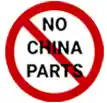Posted on April 15, 2025 fred parker Aviation
Programmable logic controllers (PLCs) have become indispensable for upgrading efficiency, productivity, and control in modern manufacturing environments. As smart factories continue to redefine traditional production landscapes, the use of PLCs in smart factories has surged. In this blog, we will detail how PLCs are utilized in smart factories and how they create more agile and responsive systems, helping you determine if investing in them is the right move for your facility.
A PLC is a ruggedized computing device used to control machinery and processes, executing programmed instructions based on input sensor data and predefined logic. PLC systems generally include a processor unit, input/output modules, memory, and communication interfaces, which come together to consistently automate repetitive or complex processes that would otherwise require manual control—a vital trait in today's highly competitive manufacturing sector.
Built for demanding environments, PLCs feature a compact and rugged design. Whether exposed to constant vibration, airborne dust, extreme temperature changes, or other harsh industrial conditions, they are able to continue operating with precision. This durability is achieved through the use of high-grade plastics, corrosion-resistant aluminum, and tightly sealed electronic components.
The Role of PLCs in Smart Factory Automation
Before delving further into the use of PLCs in smart factories, it is important to understand what characterizes a smart factory. Smart factories are advanced production facilities that integrate cyber-physical systems, automation, real-time data, predictive analytics, and remote system monitoring to optimize manufacturing operations.
In smart factory environments, PLCs often work in tandem with robotics, motion controllers, and advanced human-machine interfaces (HMIs). This collaboration allows for intricate process coordination and a higher degree of customization in production lines. Their modular nature also enables easy upgrades or expansions as production needs evolve. Overall, the integration of PLCs seamlessly synchronizes automated workflows, bridging physical hardware with digital intelligence.
Advanced PLC Functions in the Industrial IoT Landscape
The industrial Internet of Things (IoT) refers to a digitally connected ecosystem where machines, sensors, and control systems continuously share and respond to real-time data. The role of PLCs in industrial IoT is to serve as a central control point, utilizing Ethernet/IP and other industrial communication protocols to facilitate communication between physical equipment and digital platforms.
The data gathered and transmitted by PLCs can then be used to manage energy consumption, track machine performance, and enable AI-driven quality control. These functions collectively lessen operational costs, improve product quality, and enhance a factory’s ability to adapt to shifting production requirements. In addition, many modern variations offer remote diagnostics and support over-the-air software updates, allowing plant managers to troubleshoot systems or implement changes without halting operations. When paired with condition-monitoring systems, they can also signal the need for repairs or replacements before breakdowns occur.
Enhanced Safety
In addition to boosting efficiency, the reliable and deterministic performance of PLCs ensures critical systems behave predictably under all conditions. More than that, they can automatically detect hazardous conditions and responsively execute emergency safety protocols. When integrated with safety sensors and barriers, these devices can support fail-safe automation, which is essential for reducing accidents and equipment damage.
Programming and Customization Capabilities
Another major advantage of PLCs lies in their flexibility and customizability. They are programmed using ladder logic or function block diagrams, which allow engineers to design precise control strategies tailored to specific equipment, processes, and performance benchmarks. Furthermore, many support simulation tools so users can test automation sequences before deployment, reducing the risk of implementation errors and accelerating time to market.
Source Quality PLCs on Buy Industrial Parts
As a website owned and operated by ASAP Semiconductor, Buy Industrial Parts offers access to a wide selection of quality-assured PLCs and other components needed for smart factory automation. Our inventory includes items from leading manufacturers and global suppliers, each organized under common part numbers and industry designations for simplified browsing. Moreover, with competitive pricing, rapid lead times, and unwavering commitment to customer satisfaction, Buy Industrial Parts is your trusted source for tools to build smarter, more efficient operations.
 The only independent
The only independent

“We Proudly Support Intrepid Fallen Heroes Fund that serves United States Military Personal experiencing the Invisible Wounds of War : Traumatic Brain Injury (TBI) and Post Traumatic Stress (PTS). Please visit website (www.fallenheroesfund.org) and help in their valiant effort”.
We hope that you will visit us again the next time you need industrial parts and make us your strategic purchasing partner.
Request for Quote